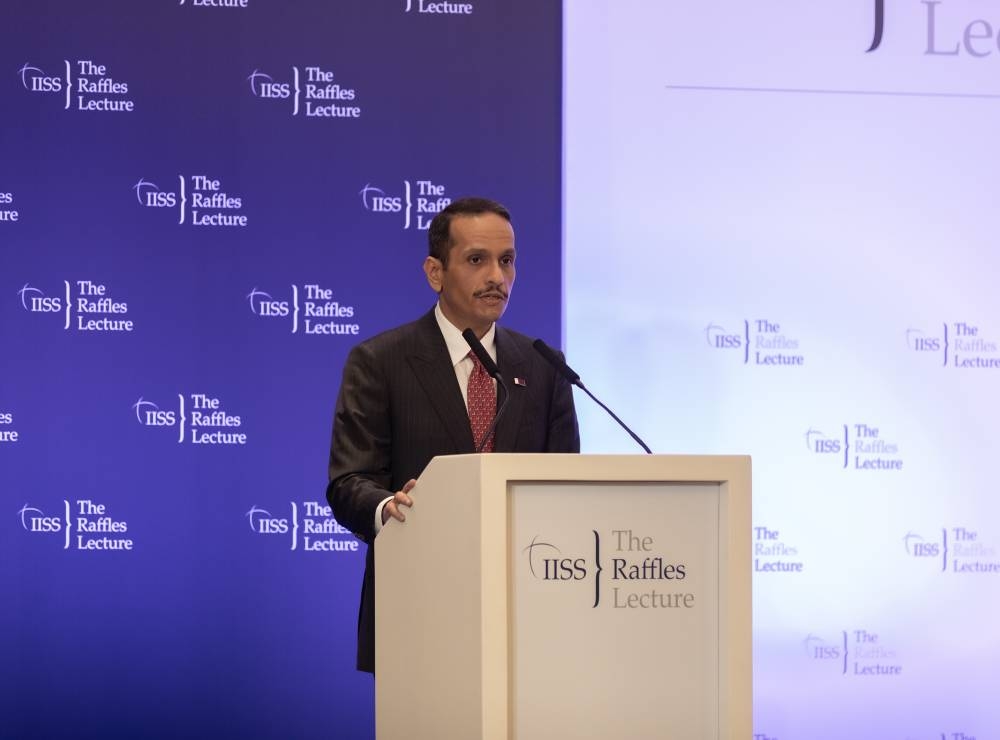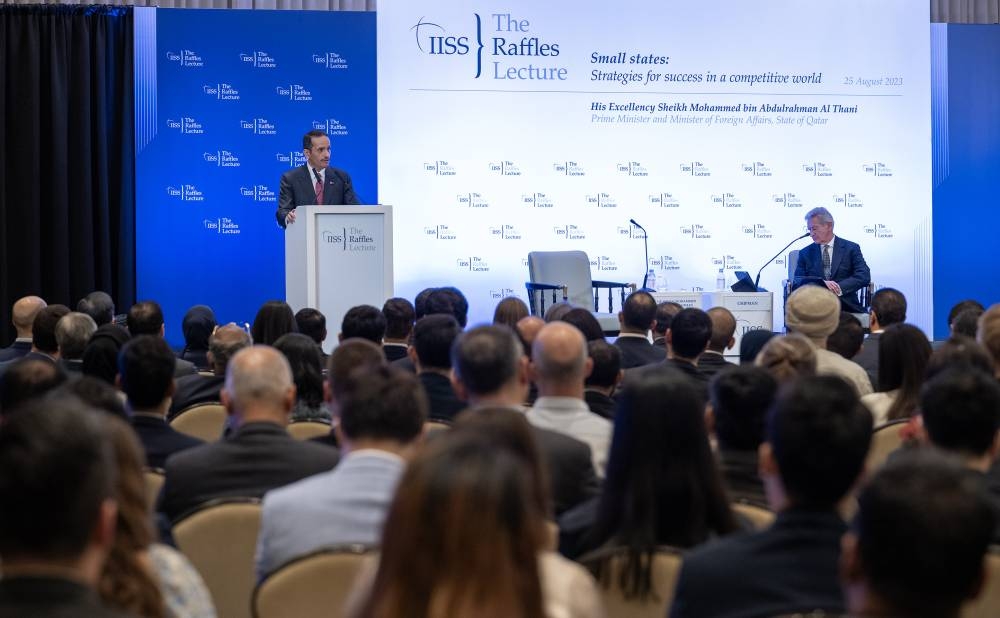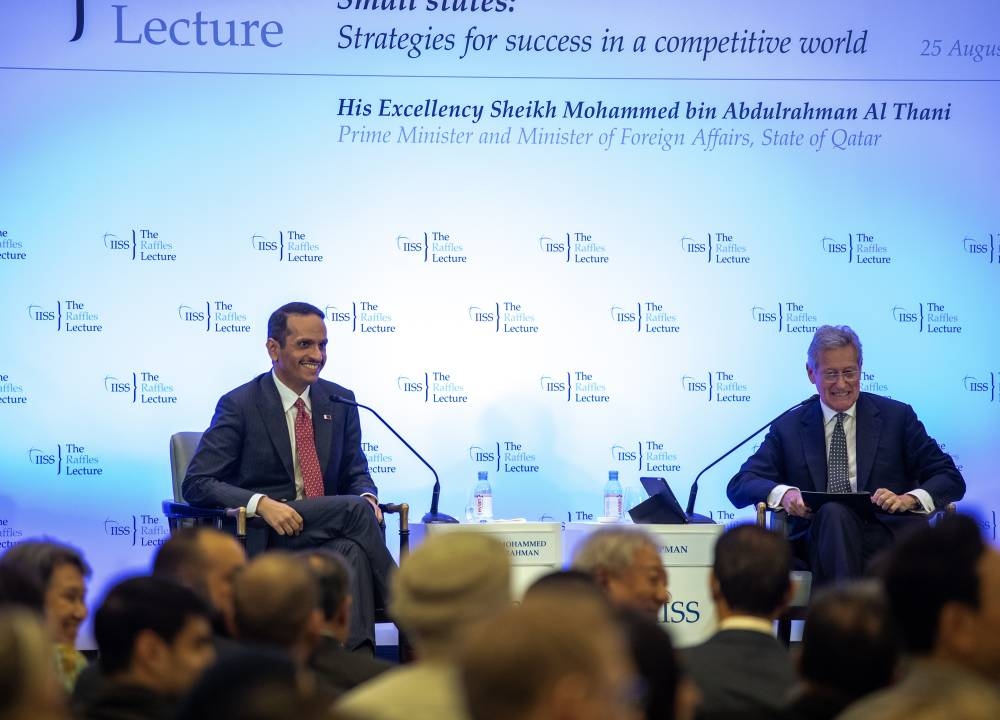Qatar wants to emerge as a centre for connectivity, a major transit hub, utilising its ideal geographical location to become a gateway between the East and West, HE the Prime Minister and Minister of Foreign Affairs Shiekh Mohamed bin Abdulrahman bin Jassim al-Thani has said.
"Our mission now is to become a centre for connectivity," he said adding, "as a transit hub, Qatar is located at the gateway between the East and West, and offers unparalleled market access and connectivity to billions of people across more than 25 economies: 80% of the world's population is within a 6-hour flight from Qatar; and Asia, Europe and the US are all just 18 days away from Qatar by ship."
Delivering the inaugural lecture of the IISS Raffles Lectures series in Singapore on Friday, he said
Qatar is strategically located to connect people and businesses physically and digitally from around the world, pointing out that Qatar's energy sector continues to expand, with many investment opportunities emerging for both local and foreign investors in the hydrocarbon industry.
"Our energy industry has launched best-in-class technological and logistical capabilities and in the years to come, we will convert this further into the healthcare and innovation industries," he said.
He outlined that Qatar's economic model has proven successful in helping host one of the biggest sporting events in the world: the FIFA World Cup.
"Qatar's successful organisation of the 2022 FIFA World Cup constituted a major feat for a small state. Not only did the tournament present an opportunity for sustainable infrastructure-building and substantial economic growth, but it also showcased Qatari, Arab, and Muslim culture, and the region to positively change stereotypes," he said.
"Qatar has a clear long-term vision on the industries that will continue to form the backbone of its domestic economy, with a multiplier- effect on the global economy as a whole," he said adding: "This is what guides the vision for our country, as well as our investments in select industries around the world, such as here in Singapore."
HE the Prime Minister and Minister of Foreign Affairs said: "Likewise, Singapore has achieved great economic success becoming a global financial hub known for its exceptional financial infrastructure and regulatory stability. Singapore's role as a bridge between Eastern and Western markets, along with its dedication to technological advancement, sets an impressive example for all small states to work towards. For small countries, investments in education, healthcare, and social welfare must remain at the forefront of our priorities."
HE Sheikh Mohamed stressed that providing opportunities for Qatari citizens equips them to contribute meaningfully to the world stage, while ensuring a robust social foundation for progress.
"It is this investment in our people that allowed Qatar to exhibit remarkable resilience in the face of regional tensions and the global pandemic.
"Qatar's leadership and its people demonstrated a steadfast resolve to maintain stability, diversify our trade routes, strengthen domestic industries, and boost our ability to withstand adversity," he said.
"For the longest time, we have looked at small states as countries that are limited by their size. But today, looking at successful examples of small states, such as Singapore and Qatar, we see how small states use the tools and strategies at their disposal to become successful actors in the international community," he said.
Wrapping up, HE the Prime Minister and the Minister of Foreign Affairs said: "History has shown that size does not dictate favourable outcomes. Through planning, fostering global partnerships, and nurturing our inherent strengths, small nations will not only succeed, but also inspire others to do so."



